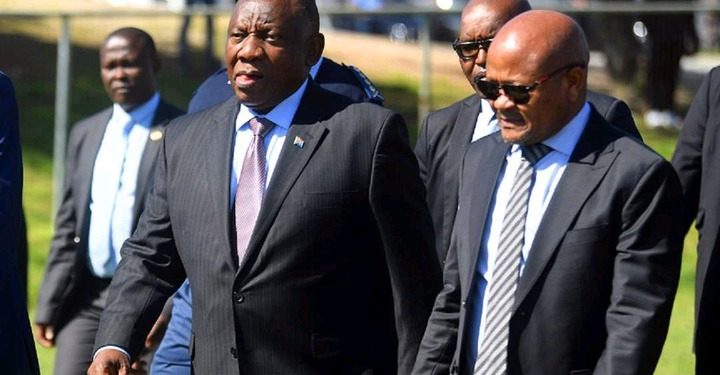Former president Jacob Zuma and his uMkhonto weSizwe Party (MKP) are once again taking their legal battle with President Cyril Ramaphosa to the courts. The party has filed a fresh application in the Gauteng High Court in Pretoria, with the case set down for hearing in September.
The move comes after the Constitutional Court dismissed the MKP’s earlier bid to challenge Ramaphosa’s handling of Police Minister Senzo Mchunu. Zuma and his party are now targeting three key decisions made by the president: placing Mchunu on special leave over corruption allegations, appointing Professor Firoz Cachalia as acting Police Minister, and setting up a judicial commission of inquiry into the matter.
According to court papers, the MKP argues that Ramaphosa’s actions were unconstitutional, lacked procedural fairness, and amounted to an abuse of executive power. They maintain that the president exceeded his authority and undermined democratic checks and balances by unilaterally sidelining Mchunu and restructuring responsibilities within the security cluster.
The Constitutional Court previously ruled that the MKP’s application for direct access was without merit, effectively leaving the party with no choice but to pursue its challenge in the High Court. Political analysts believe this latest move is more about political maneuvering than sound legal reasoning. They point out that the apex court was clear: such matters should first be dealt with in the lower courts, and the chances of overturning Ramaphosa’s decisions remain slim.
“Zuma and the MKP are keeping the spotlight on Ramaphosa, but this looks more like a political strategy to weaken his authority rather than a legal case with strong prospects,” one analyst explained.
As the September hearing draws closer, the case is expected to test not only the strength of the MKP’s legal arguments but also the broader question of presidential powers in South Africa’s constitutional framework. The outcome could shape how far a sitting president may go in suspending ministers, appointing acting replacements, and establishing commissions of inquiry.
With tensions between Ramaphosa and Zuma’s political faction showing no signs of easing, the court battle is likely to add another layer of uncertainty to the already volatile political landscape.






















